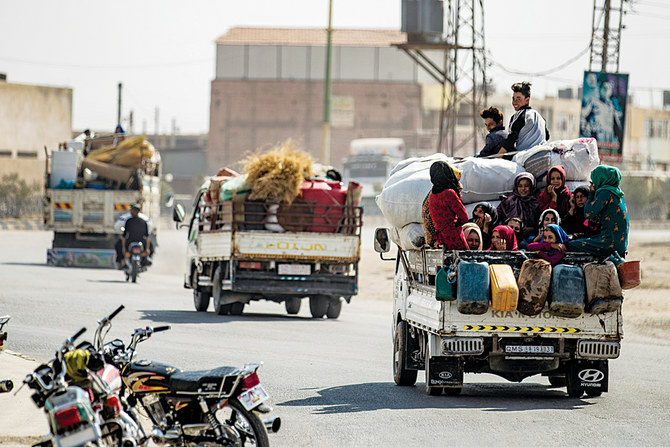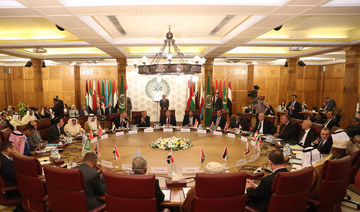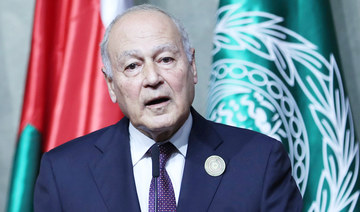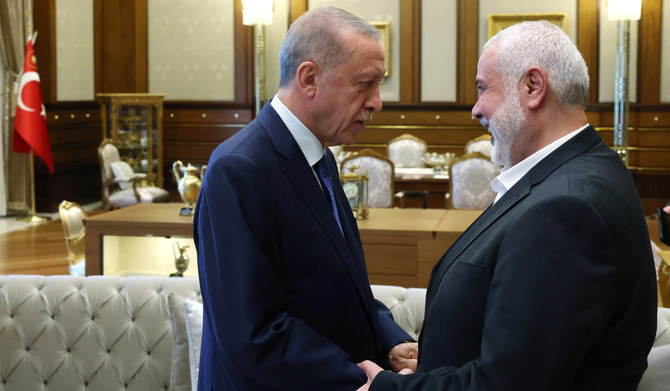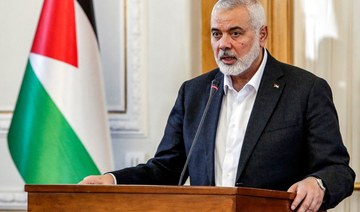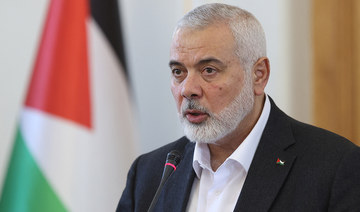ERBIL, Iraqi Kurdistan: Turkey’s incursion into northeast Syria has given rise to fears that its military will commit another major atrocity against the war-torn country’s Kurdish minority.
The UN has warned that 1.7 million people in northeast Syria are at risk as a result of Operation Peace Spring, and that up to 300,000 could soon be displaced, which would create a new humanitarian crisis.
Turkey has targeted urban centers with airstrikes and shelling, sending civilians fleeing en masse from their homes.
Ankara has said its military operation is justified since the Syrian-Kurdish People’s Protection Units (YPG) group has links to the Turkish Kurdistan Workers’ Party (PKK), which Ankara has been fighting since 1984 in a conflict that has killed more than 40,000 people. The US and the EU have also designated the PKK as a terrorist organization.
But the YPG has not sent its forces to help the PKK in its operations in either southeast Turkey or Iraqi Kurdistan, instead focusing its efforts on the war against Daesh in Syria.
HIGHLIGHTS
64,000 - People displaced in NE Syria
300,000 - People likely to be displaced
40,000 - Number of SDF fighters
$300 million - Fall in US humanitarian aid to Syria from 2017 to 2019
3.6 million - Syrian refugees in Turkey
After the US military partnered with the YPG, which later formed the larger, multi-ethnic Syrian Democratic Forces (SDF), against Daesh in 2014, Ankara said Washington was making a mistake by using “one terror group to eliminate another.”
Nevertheless, the SDF proved the only capable and reliable ally the US had on the ground in its campaign against Daesh in Syria.
Today, Turkish President Recep Tayyip Erdogan has not concealed his goal for the future of northeast Syria.
Besides insisting that the YPG must be completely neutralized, he has outlined his goal of resettling millions of Syrian refugees currently residing in Turkey in Syria’s Kurdish-majority areas.
“We intend to establish initially a peace corridor with a depth of 30 km and a length of 480 km, and enable the settlement of 2 million Syrians there with the support of the international community,” Erdogan told the UN General Assembly on Sept. 24.
He intends to do this through a $27 billion project to build new cities and towns in Syrian Kurdistan that will be repopulated with Syrian refugees currently residing in Turkey.
Ossama Muhammad, a Syrian-Kurdish interpreter and translator, lamented the situation in a Facebook post, writing: “Now families of those who were killed to defend the world, will keep behind alone to wait for new genocide and demographic change, the Kurds will never trust the humanity or the world or human rights again.”
Muhammad was referring to the immense sacrifices made by Kurds to stop Daesh in Syria.
Erdogan has also threatened to send millions of Syrian refugees to Europe if it opposes the settlement project or criticizes the military operation.
This would not be Turkey’s first assault on the Syrian Kurds. In early 2018, it entered the northwestern enclave of Afrin with the help of the Free Syrian Army (FSA).
At the time, Erdogan openly spoke of returning Afrin to its “rightful owners.” By this, he meant resettling non-Kurds in a Kurdish-majority region.
Opinion
This section contains relevant reference points, placed in (Opinion field)
Before Turkey’s invasion, Afrin stood out as an oasis of stability that had welcomed displaced Syrians regardless of ethnicity from across the war-weary country.
After the invasion, which displaced well over 100,000 Kurdish civilians, the FSA rapidly sought to resettle displaced Syrians in the enclave, encouraging them to occupy vacated Kurdish homes, and even giving them Turkish-issued residency permits, in a clear bid to cement the demographic changes caused by the invasion.
Many groups within the FSA have destroyed symbols of Afrin’s Kurdish and Yazidi cultural heritage. The FSA has also committed human rights violations against Afrin’s civilian population.
Amnesty International said these violations included “arbitrary detentions, enforced disappearances, and confiscation of property and looting to which Turkey’s armed forces have turned a blind eye.”
The YPG has also been accused of human rights violations in northeast Syria. In August 2018, Human Rights Watch (HRW) criticized the group for recruiting children into its ranks from displaced-persons camps. The SDF promptly issued a decree to end this practice, which was welcomed by HRW.
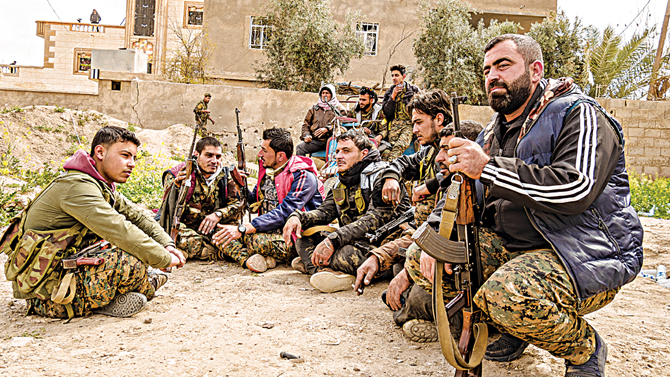
The Syrian Democratic Forces proved the only reliable ally the US had in the fight against Daesh in Syria. (Shutterstock)
In 2015, Amnesty International reported that the YPG destroyed entire villages that it had captured from Daesh.
The report said there was no justification or military grounds for destroying these Arab villages.
Amnesty suspected that the YPG was motivated by a desire to collectively punish civilians from villages previously occupied by Daesh, or to settle land disputes with Arabs going back decades.
Kurds fear that Turkey will carry out a large-scale campaign of ethnic cleansing in its current operation.
They feel betrayed by US President Donald Trump for countenancing the Turkish invasion, because the SDF was the predominant ground force in Syria that destroyed Daesh’s “caliphate.” The SDF says it sacrificed approximately 11,000 men and women in that fight.
Mohammed Salih, a Kurdish journalist and doctoral student at the University of Pennsylvania’s Annenberg School for Communication, sees the latest Turkish foray into Syria as Erdogan’s “final solution of the Kurds.”
Salih told Arab News: “Erdogan and his Syrian jihadi proxies are planning and interested in nothing less than ethnic cleansing of not only the Kurdish people in northeast Syria, but based on what we’ve seen in Afrin, of Christian and Yazidi populations there as well.”
He said: “This isn’t a matter of conjecture and speculation. The ongoing example of Afrin supports these fears without a shred of doubt.
“Turkish government officials have unequivocally made clear that they plan to resettle … non-Kurdish Syrian refugees in the narrow strip of land populated by the Kurds.
“The world needs to act and stop Erdogan’s genocidal designs.”




